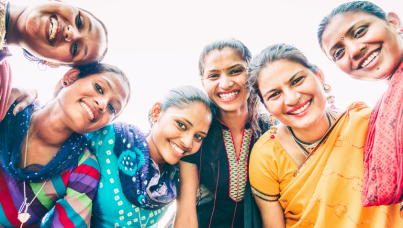90% Urban Indians foresee United Nations emerging top influencer of World Affairs in 10 years: Ipsos-Halifax World Affairs Influencers global Survey
According to the Ipsos-Halifax World Affairs Influencers global survey, which captured engagement in international affairs of citizens in 24 countries, 90% of urban Indians polled have predicted United Nations as top influencer of world affairs in 10 years! Other influencers named include Canada (88%), US (85%) and NATO 78%).
The laundry list included a mix of institutions and countries.
Interestingly, global citizens’ list of biggest influencers in the next decade has Canada (81%), right at the top, followed by Germany (75%), France (71%), United Nations (71%), European Union (70%), my country (68%), Great Britain (62%), The World Bank (61%) and NATO (60%).
The US or China? Whose economic & political model is better
If it was a toss-up between the US and China, 74% Indians say they would emulate the US model of politics and economics for India; in contrast, only 47% favored the Chinese model.
Interestingly, both the US model and the Chinese models (economic & political) found fewer takers at the global level, at 41% and 35% respectively.
Free Trade, domestic focus, global goals, global influencer
85% of urban Indians are strong votaries of Free Trade for India – global citizens (81%) too support free trade.
At the same time, 76% of urban Indians want India to tread with caution and focus more on domestic interest vis-a-vis global affairs, as India is faced with tough economic issues. Similar views are held by majority of global citizens (73%), as there is global slowdown.
Further, 80% urban Indians want India to work with other countries towards global goals even if it does not bring in the gains everytime. Majority of global citizens (79%) too advocate the same.
88% urban Indians expect India to display exemplary ethics at the global level. Most global citizens (74%) too feel the same for their countries.
Urban Indians want digitisation to be leveraged in governance
77% of urban Indians polled strongly believe in the transformative powers of digital technology in revolutionizing democracy. Only 44% global citizens hold this view, though. Interestingly, China (76%) and Malaysia (66%) are the other two markets that echo India’s views. Japan (19%) and France (21%) are at the bottom of the heap.
There is also a strong case building for voters demanding a higher say in governance, riding on the back of digital technology and curtailing the powers of elected officials, terming this phenomenon as Direct Democracy. At least 70% of urban Indians polled, hold this view. 54% of global citizens endorse direct democracy.
Now comes the shocker! At least 58% of the urban Indians polled have a poor view of the political system in India – believe, the political system is usurped by the elite that is corrupt, obsolete (outdated) and un-reformable. Similar view is held by global citizens (58%). Markets most impacted are Colombia (86%), Peru (82%) and South Africa (79%).
At the same time 71% urban Indians are hopeful that their children will see a better democracy versus what it is now. 53% global citizens endorse this view.
India’s political system fares better than most markets when it comes to representing views and interests of citizens. 56% Indians give the govt a pat on its back. While global citizens have a miniscule 27% being satisfied with the political system.
Amit Adarkar, Ipsos India CEO & Operations Director APAC, Ipsos said, “Fascinating data on how the World views the US and China - two biggies caught in a trade war. Two big findings for me – One, Indian netizens are the top supporters of the US economic and political model, more than even how much the US citizens root for their own country. Does this mean that we are fast losing our faith in the parliamentary democracy and showing more openness to presidential one? This year’s general elections did feel like presidential elections. Two, a support for protectionism across the globe as most people want their governments to focus on their own countries much more then tackling global priorities. India has certainly been much more vocal about protecting its own interests in recent times whether they are trade negotiations or initiatives like OBOR.”
"Let’s face it, no country can subsist in isolation and close its doors to global markets. Urban Indians realize that while it is important to safeguard domestic turf, the economies are interlinked and global cooperation is becoming increasingly imperative. 88% Urban Indians expect India to follow high levels of exemplary ethics for other markets to emulate," added Adarkar.
Methodology
These are the findings of the Global Advisor wave 131, an Ipsos survey conducted between August 23rd and September 6th, 2019.
The survey instrument is conducted monthly in 28 countries around the world via the Ipsos Online Panel system.
The countries reporting herein are Argentina, Australia, Belgium, Brazil, Canada, China, Chile, France, Great Britain, Germany, Hungary, India, Israel, Italy, Japan, Malaysia, Mexico, Peru, Poland, Russia, Saudi Arabia, Serbia, South Africa, South Korea, Spain, Sweden, Turkey and the United States of America.
For the results of the survey presented herein, an international sample of 18,526 adults aged 18-74 in the U.S., South Africa, New Zealand, Turkey and Canada, and age 16-74 in all other countries, were interviewed.
Approximately 1000+ individuals participated on a country by country basis via the Ipsos Online Panel with the exception of Argentina, Belgium, Chile, Colombia, Hungary, Malaysia, Mexico, Netherlands, Peru, Poland, Russia, Saudi Arabia, South Africa, South Korea, Sweden and Turkey, where each have a sample approximately 500+.
The precision of Ipsos online polls are calculated using a credibility interval with a poll of 1,000 accurate to +/- 3.1 percentage points and of 500 accurate to +/- 4.5 percentage points. For more information on the Ipsos use of credibility intervals, please visit the Ipsos website.
15 of the 28 countries surveyed online generate nationally representative samples in their countries (Argentina, Australia, Belgium, Canada, France, Germany, Great Britain, Hungary, Italy, Japan, Netherlands, Poland, South Korea, Spain, Sweden, and U.S.).
Brazil, China, Chile, Colombia, India, Malaysia, Mexico, Peru, Russia, Saudi Arabia, South Africa and Turkey produce a national sample that is more urban & educated, and with higher incomes than their fellow citizens. We refer to these respondents as “Upper Deck Consumer Citizens”.
They are not nationally representative of their country.



